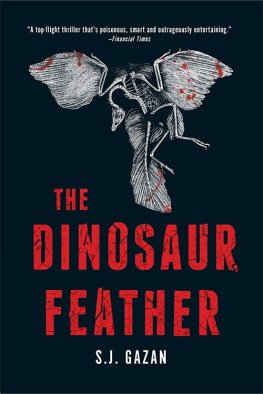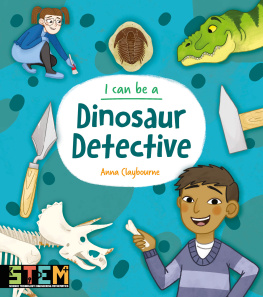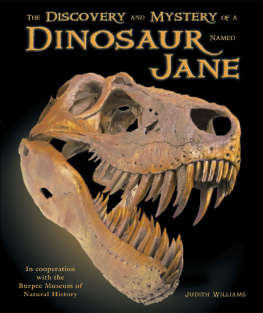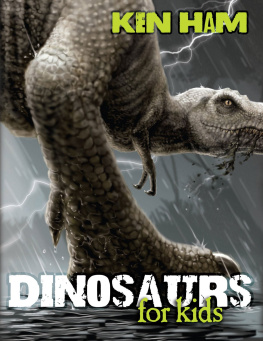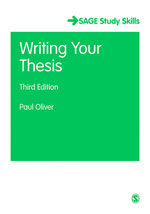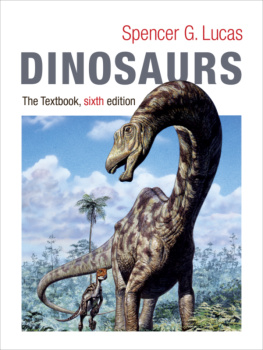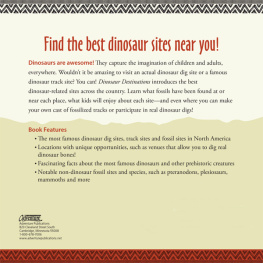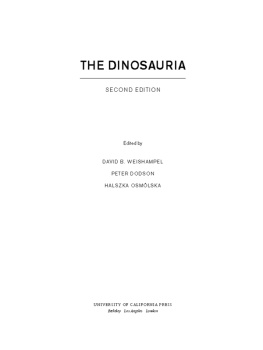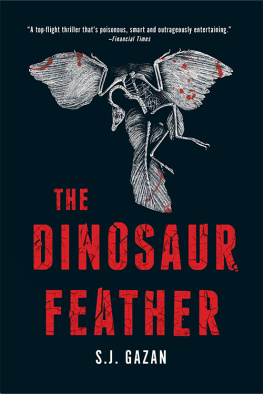S.J. Gazan
THE DINOSAUR FEATHER
Translated from the Danish by Charlotte Barslund
Solnhofen, Southern Germany, 5 April 1877
Anna Bella Nor was dreaming she had unearthed Archaeopteryx, the earliest and most primitive bird known. The excavation was in its sixth week, a fine layer of soil had long since embedded itself into everyones faces and the mood had hit rock bottom. Friedemann von Molsen, the leader of the excavation, was the only one still in high spirits. Every morning when Anna staggered out of her tent, sleepy and shivering in the cold, von Molsen would be sitting by the fire, drinking coffee; the congealed oatmeal in the pot proving he had cooked and eaten his breakfast long ago. Anna was fed up with oatmeal, fed up with dirt, fed up with kneeling on the ground that only revealed bones that were, of course, interesting in their own right, but were too young to be the reason she studied biology, and most definitely not the reason she was spending six weeks of her precious summer vacation living in such miserable conditions. The year was 1877 and, at this point in her dream, Anna got the distinct feeling something didnt add up. She was wearing her quilted army jacket and thick furry boots with rubber soles, but Friedemann von Molsen didnt seem the least bit surprised, even though he had a pipe in his mouth and was wearing a three-piece corduroy suit with a pocketwatch and a wool cap that rested on his ears.
They were in Solnhofen, north of Munich, and in addition to Anna and von Molsen, the group consisted of two local porters, two other postgraduate students, and von Molsens brandy-colored retriever bitch, whose name also happened to be Anna Bella; a truly irritating detail in the dream. While they plodded across the same ridge as yesterday, von Molsen told anecdotes. His stories werent particularly amusing and, by now, Anna had heard them so many times that she no longer derived any pleasure from having been dropped into a time in history in which any natural scientist would give their right arm to experience. Whenever von Molsen was about to speak, he would snatch his pipe from his mouth and point it in the direction of England. It was Darwin who had upset his sense of order.
In the 1870s Darwins theory of evolution was starting to gain a foothold, but the mechanism that caused species to evolve was a matter of huge controversy, and though it fascinated von Molsen, he categorically dismissed Darwins theory that evolution was driven by natural selection. When his feelings ran high, von Molsen would call Darwin a stickleback. Anna failed to see how a stickleback could be the worst term of abuse von Molsen could imagine.
At the start of the expedition Anna had challenged von Molsens argument, and this was how his interest in her had originated. Von Molsen was a man who encouraged curiosity toward the phenomena of natural science, and it was perfectly reasonable, he declared, to play devils advocate in order to provoke a stimulating debate. This, on the proviso that one didnt seriously believe that in a few decades the sticklebacks hypothesis would be accepted as common sense; that all living organisms, mice and men, birds and beetles, had evolved from the same starting point and that differences in their individual morphology, physiology, and behavior were entirely the result of adaptation and competition. What would be the consequence of that? von Molsen had demanded and pointed abruptly at Anna with his pipe, but before she had time to reply, he answered his own question.
The conclusion, he declared, cheerfully, would be that the genome wasnt a constant. It could be changed and no one would be able to predict what would cause it to change. As if everything, life and nature, was entirely random and unplanned. The whole business is insane!
During an already notorious lecture at Oxford University, Darwin had recently argued that the vast gaps in fossil evidence for birds existed solely because such fossils had yet to be discovered. Once they were found, and this was purely a matter of time, the evolutionary game of patience would come out and it would be obvious to everyone, as it already was to Darwin and his supporters, that the driving force behind evolution was the process of natural selection. The man must be mad, von Molsen had exclaimed, and looked sharply at Anna.
The conversation had occurred on the fifth day of the expedition by which time Anna had already gained a reputation for being something of a chess wizard. They played on a small board with horn pieces, which von Molsen had conjured up from the left-hand pocket of his jacket, opposite the one in which he kept his pipe, and he balanced the board on his right thigh. Anna had slipped up when, in an attempt to support Darwins views, she had mentioned a fossil that wouldnt be discovered for another seventy-four years, and had, in order to cover up her gaffe, dug herself into an even bigger hole by citing the feathered dinosaur from China, which two Chinese paleontologists would find and describe 124 years into the future. At this point, von Molsen had become so outraged that he accidentally knocked his own queen off the board. Anna felt like banging her head against one of the tent poles. Were talking serious science here, not tomfoolery and nonsense, von Molsen had sneered as he picked up his queen. Anna gave up. After all, it was just a dream.
From that day onward Annas mood had gone steadily downhill and this morning when von Molsen, in an exuberant state of mind, started gesticulating toward England with his pipe, Anna decided that, as far as she was concerned, the excavation was over. She would return to Munich, eat a decent meal, then take the train back to Berlin and from there travel home to Copenhagen. She rubbed her eyes and tried to wake up, but the wind swept heedlessly across the Bavarian plain and von Molsen had turned ninety degrees north and reinserted his pipe. In the distance Anna saw a hare rise onto its hind legs to sniff the air before it disappeared into the scrub. She sighed.
During the day, when Anna was awake, the year was 2007, and she was enrolled in the master of science program at the College of Natural Science at the University of Copenhagen, more specifically at the department of Cell Biology and Comparative Zoology at the Institute of Biology, where she had spent the past year writing her dissertation on a scientific controversy which had been running for more than 150 years. Were birds present-day dinosaurs or did they originate from an even earlier primitive reptile? She had just handed in her dissertation and her dissertation defense was in two weeks.
Scientific controversies were par for the course. People had argued whether the Earth was flat or round, whether man was related to the apes, the status of the Milky Way compared to the rest of the universe, with a fervor that ceased the moment sufficient evidence became available. The earth is round, man is a primate, and the Milky Way does mainly consist of red stars. However, the controversy surrounding the origins of birds appeared to be different. It rumbled on, even though, scientifically speaking, there was nothing left to discuss.
Von Molsen relit his pipe and the sweet tobacco aroma tickled Annas nostrils. Someone started to make coffee. She could see and hear Daniel, one of the other students, clatter with a saucepan while he said something to von Molsen and hitched up his trousers, which tended to fall down. Daniel had been fairly chubby five weeks ago when the excavation began, but since then he had lived on the same food as everyone else: beans, oatmeal, cabbage, and coffee. Anna suspected that Daniel secretly questioned von Molsens dismissal of natural selection. The day she had debated it with von Molsen and had completely shot herself in the foot by referring to the two as yet undiscovered fossils, she had exchanged glances with Daniel, who was standing a little further away pretending to secure a couple of guy ropes, and she thought she had detected something in his eyes. Something that told her he had genuine doubts as to whether Darwins theory of natural selection was really as far-fetched as the older established scientists of the day were claiming.

